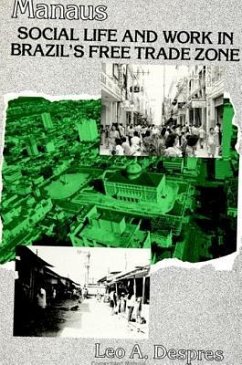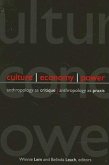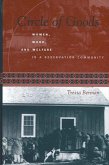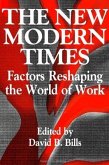Manaus, an urban-industrial center in the Amazon, serves in this book as a microcosmic case of dependent capitalist development in Latin America. With the creation of a Free Trade Zone and a strong program of fiscal incentives in 1967, the Brazilian government initiated a large-scale project designed to establish an industrial pole in Manaus. This book is an anthropological study of the impact of this type of development on the economic, social, and cultural life of working class families. This study underscores the work relationships between different economic sectors, the economy of households, the organization of domestic groups and, ultimately, the social engagement of working class families in the life of their neighborhoods, the city, and the larger Brazilian society. Despres examines the theoretical value of modernization, dependency, and modes of production approaches for understanding the social formation of working class populations. In discussing capitalist development in Brazil, the author grapples with the problems of urbanization, industrialization, and economic development in Latin America generally.
Hinweis: Dieser Artikel kann nur an eine deutsche Lieferadresse ausgeliefert werden.
Hinweis: Dieser Artikel kann nur an eine deutsche Lieferadresse ausgeliefert werden.








